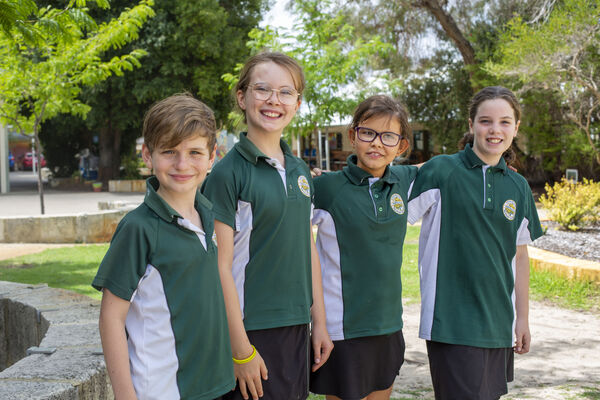Overview
Alignment with Be You Domains
-
Mentally Healthy Communities
-
Family Partnerships
-
Learning Resilience
-
Responding Together
Alignment with Australian Curriculum
- English
- Health and PE
Target audience
- Early learning
- Primary school
- Secondary school
Target groups
- Whole school
Aims
The Resilience Project Partnership Program is for early learning services, and primary and secondary schools. The program supports services and schools to build and maintain social and emotional skills and strategies, and enhance resilience. The Partnership Program is designed so that early learning services and schools are equipped to promote positive mental health strategies; families are better-placed to implement positive mental health strategies and young people embed positive mental health strategies in daily routines. It aims to improve mental health and resilience and increase positive affect and wellbeing.Program theory
Positive psychology and resilience theory.Topics
The Partnership Program focuses on strategies to cultivate positive emotion, specifically: gratitude, empathy and mindfulness (GEM), with emotional literacy a foundational skill for practicing these strategies.Cost
Program structure
The program's first step is to partner with educators to build their capacity in wellbeing. This is through a digital series of activities and presentations that explore the concepts of gratitude, empathy and kindness, mindfulness and emotional literacy. The second step is to introduce these concepts to children and young people by age relevance (4-year-old kindergarten, Foundation to Year 3, Years 4 to 6, Years 7 to 9 and Years 10 to 12), as well as to the parents and community. The concepts are embedded in a year-level-specific curriculum, an ongoing resource for the early learning service or school. Schools participating in the program will take part in the Resilient Youth Survey, which provides a wellbeing profile of each individual school. Schools will be able to compare and measure their own wellbeing profile.Instructor
Not provided
Instructor training
Not provided
Supporting resources or materials available with program
Not provided
Ongoing support
The Resilience Project has an education support team. From this team, each early learning service or school is assigned a key contact person who is responsible for supporting the day-to-day implementation of the program in services and schools, delivering Resilient Youth survey results (schools only), and providing practical tools to meet the needs of services and schools.Parent involvement
- Attend information sessions
- Follow-up information provided after program
- Written information provided to parents
Origin of program
Australia
The Resilience Project
Program authors
Hugh Van Cuylenburg, Martin Heppell
- 81 Sackville Street,Collingwood VIC 3066 Australia
Ratings
Summary of evidence factors
This is a summary of the evaluation or research study characteristics that contribute to the program’s evidence rating.
|
Positive impact on at least one outcome for children and/or young people?
The study reported positive outcomes. |
No |
|---|---|
|
Link between program description and theory of change
Theory of change refers to whether there was a comprehensive description and illustration of how and why a desired change is expected to happen in a particular context. |
Some links |
|
Study design
Type of study design reported. |
Pre-post cohort |
|
Independence
The degree to which the program authors were involved in the research. |
Completely |
Summary of implementation factors
This is a summary of the program’s characteristics that contribute to its implementation rating.
|
Feedback sought from participants
Participants enjoyed the program and understood its benefits. |
Yes |
|---|---|
|
Feedback sought from instructors
Instructors enjoyed the program and understood its benefits. |
Yes |
|
Groups program is not suitable for
Groups the program wouldn't be suitable for or that required further research to determine suitability. |
Not assessed |
|
Training provided during study
The model of training provided. |
Face to face, all instructors, in person |
|
Ongoing instructor support provided during study
Whether ongoing support is provided. |
Yes |
Context
This is a summary of the context in which the evidence for the program was established.
|
Study Participants
Pre school, primary school (Foundation to Year 6), secondary school (Years 7 to 12). |
Primary school |
|---|---|
|
Country of Study/s
The location in which the evidence or research was conducted. |
Australia |
|
Location of Study/s in Australia
The state (or states) the program was assessed in Australia. |
VIC |
|
Evaluation of program in culturally and linguistically diverse populations
Provider has included culturally and linguistically diverse people when assessing the program. |
Yes |
|
Evaluation of program in Aboriginal and Torres Strait Islander children and young people
Provider has included Aboriginal and Torres Strait Islander peoples when assessing the program. |
Yes |
|
Evaluation of program in low socioeconomic groups
Program has evaluated a diverse socio-economic population in their research. |
Yes |
|
Developmental based adaptations to program design and delivery
Shorter sessions for younger students or activities are adjusted for age appropriateness. |
No |
|
Evaluation of program in children and young people with disability and/or learning difference
Provider has included participants with a disability or learning difference when assessing the program. |
Yes |
Last updated: 17 January 2024
